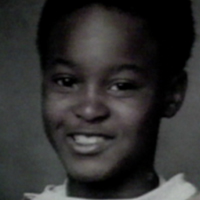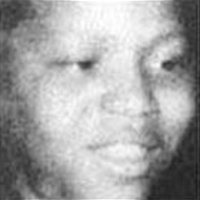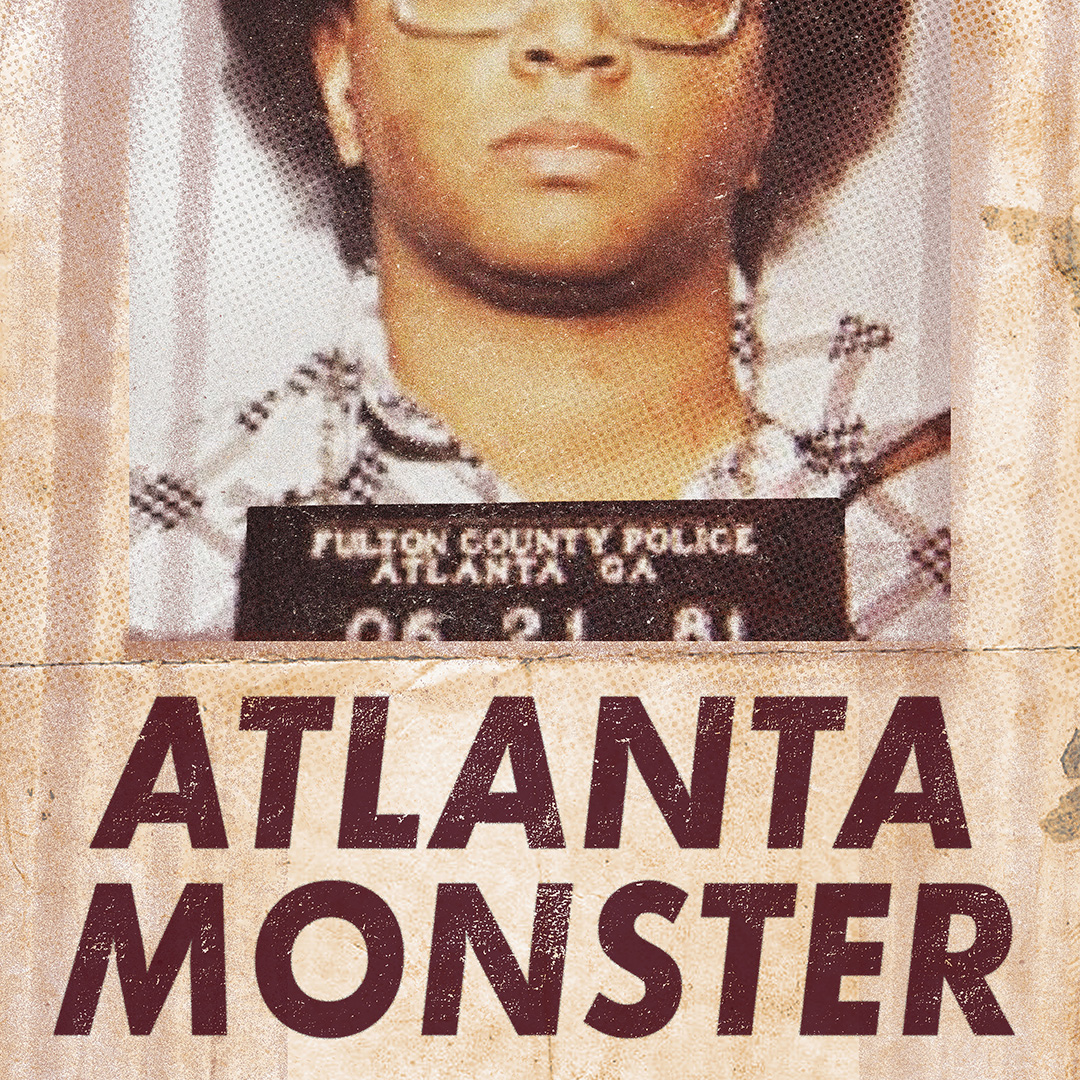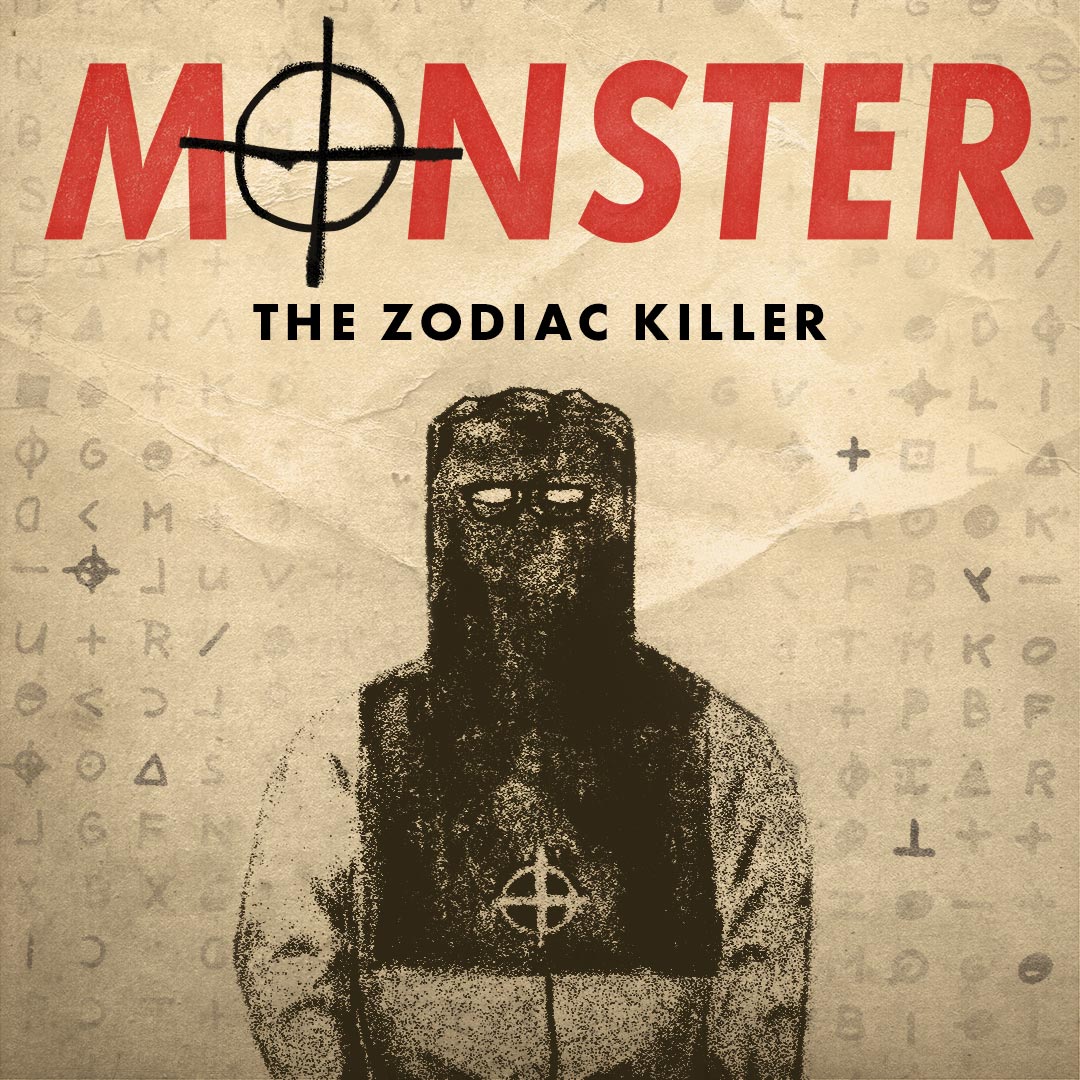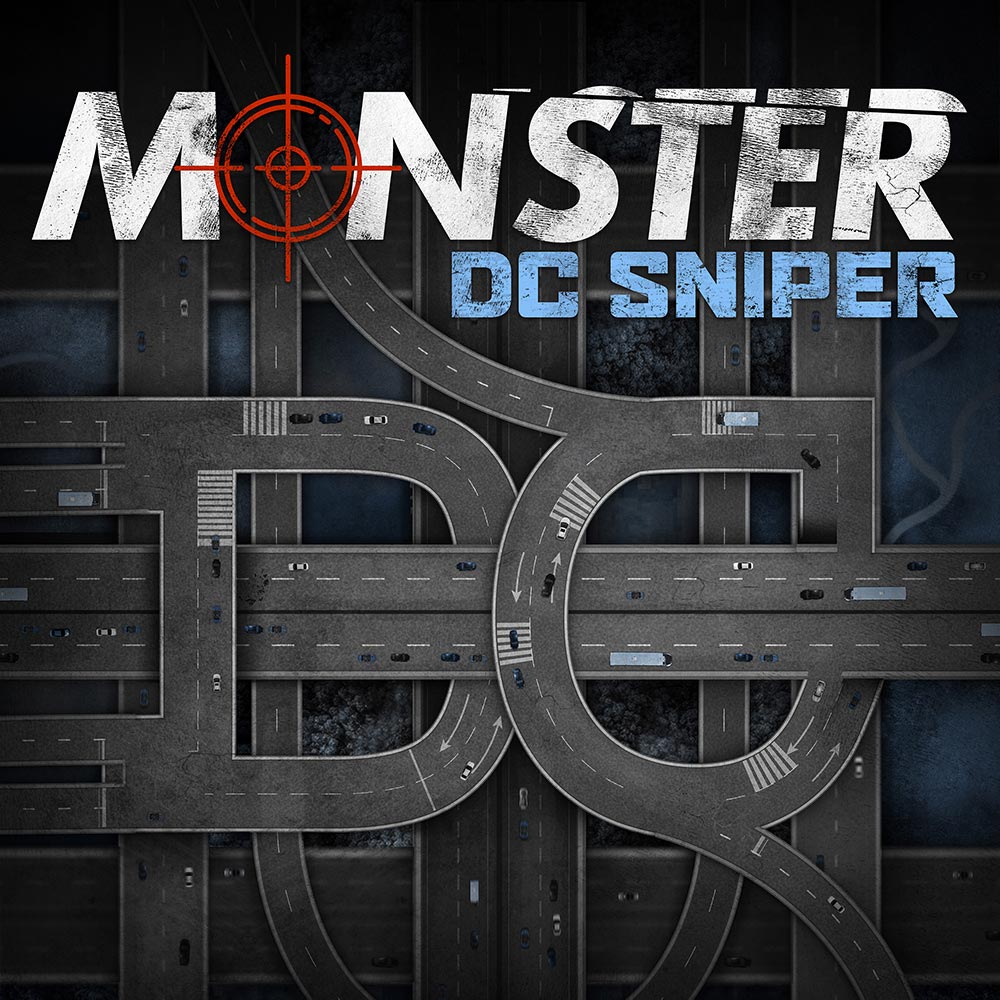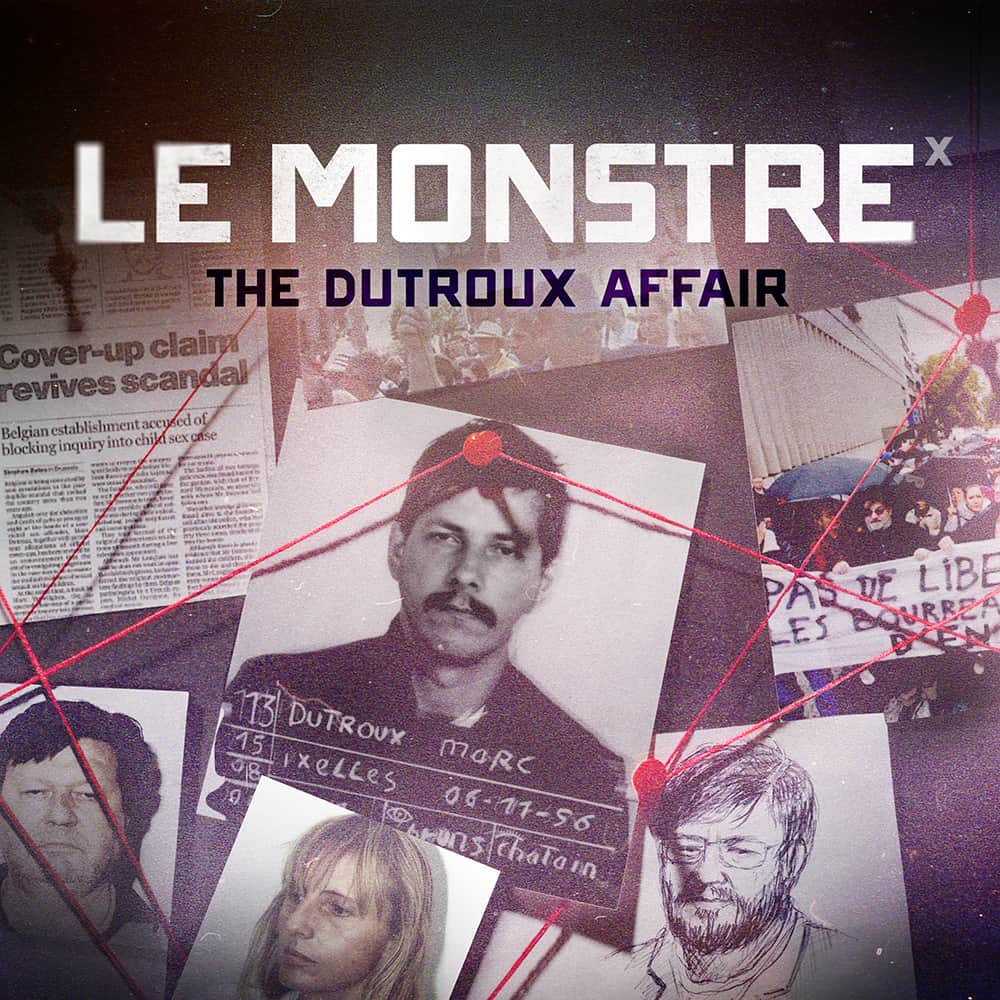Episode 8
CIA
What car did Wayne really drive? Where did the reward money go? And was Wayne scouted by the CIA?
– Monica Kaufman Pearson, WSB-TV news anchor
I’ve recently been told that if I release this podcast, “bad things” are going to happen to me in the sense of a threat on my life, or my safety, or that of my family.
– Neil Strauss, Journalist/Host
I’ve recently been told that if I release this podcast, “bad things” are going to happen to me in the sense of a threat on my life, or my safety, or that of my family.
– Neil Strauss, Journalist/Host
– Captain Dave, reporter
Victims
Jefferey Mathis
Age 10
Last Seen 03/11/1980
Clifford Jones
Age 12
Last Seen 08/20/1980
Transcript
Payne Lindsey: Previously, on Atlanta Monster:
Monica Kaufman: The one thing I remember most about The Missing and Murdered Children is Maynard Jackson sitting there with piles of cash, offering a reward for any information on who was committing these crimes.
Mike McComas: We caught Wayne Williams at 2: 55 a.m. on the last day of the surveillance.
Wayne Williams: I’ve been incarcerated since 1981. Few people realize I was never convicted in connection with any of the child murders.
Sanders’ friend: But once it was pinned on Wayne Williams, they were through. That was their way out.
Monica Kaufman: Some people in the black community thought it was the Ku Klux Klan that was grabbing these black boys.
Mike McComas: The Klan wanted to take credit for it.
Jim Procopio: They weren’t bright enough to commit this crime.
News Reporter 1: They have a letter.
News Reporter 1: They called Sanders, the Klansman, the prime suspect in the murders four months before Wayne Williams was arrested and charged with two of the murders.
Sanders’ friend: Anybody out there who thinks that Wayne Williams didn’t do all this by himself is correct. I only know that from the mouth of the devil himself.
David Foulk: I did some television in my early career, I learned on 16 millimeter film and 16 millimeter mag-stripe film and was a TV reporter in the transition to video tape, 3,000 hours of it in a helicopter. Captain Dave in the WSB Skycopter. It was nickname that was laid on me, I didn’t make that one up. I started in broadcasting in 1969. So I’m an OD.
continue reading
David Foulk: A couple of years in, they started finding the bodies of young, black males and we had a big news room. We had a lot of reporters. We would all ask the police, “Are these related? Are these things connected? Could there be a connection between these?” And the answer was, “No.” Until the bodies started adding up, I don’t know whether the police admitted to themselves or whether they already knew but didn’t say, but then they had to say something. It was too obvious that there was a pattern to this in some way and they started talking about it in that manner. And I was at many of the scenes. Many of the scenes where the bodies had been found. Up unto that point, and the homicide police knew me, knew of me, and there was a level of trust, that you could walk up almost to the body and talk with them, and they would know that you would be judicious about what you reported. But when they started finding these bodies, there was none of that. We were kept far away, for the most part, away from where you could take any pictures or see anything about it. And that has left many questions for me.
David Foulk: I knew Wayne Williams. I knew Wayne Williams from his days as a freelance television news photographer. He had a nice camera, that’s the first thing I noticed. He had a [Frezelini 00: 04: 07] camera and not everybody has one of those on their shoulders at that time. Wayne would be out in the city scanner chasing and he would find a shooting or a fire or some such going on at night and we would come in in the morning and the radio, and Wayne would be there and he would ask us, “Do you have a story about,” For instance, a fire, “Fourteenth Street?” If we said we did, he would ask to photocopy the script. He would take that photocopy and tape it to his film can and leave it for Channel 2. The one thing that I noticed about Wayne was the car he drove. It was a blue Plymouth Satellite, and it was just like a detective police car in Atlanta.
Intro: In Atlanta, another body was discovered today, the 23rd.
Intro: At Police Task Force Headquarters, there are 27 faces on the wall, 26 murdered, one missing.
Intro: We do not know the person or persons that are responsible, therefore we do not have the motive.
Payne Lindsey: From Tenderfoot TV and How Stuff Works in Atlanta-
Intro: Like 11 other recent victims in Atlanta, Rogers apparently was asphyxiated.
Audio: Atlanta is unlikely to catch the killer, unless he keeps on killing.
Payne Lindsey: … This is Atlanta Monster.
David Foulk: Wayne Williams drove a blue Plymouth Satellite. It looked just like an unmarked Atlanta police car. I’m pretty good at spotting undercover cars because of the way I drive and that one stood out.
Payne Lindsey: The main car in this case has always been that white station wagon, the one Wayne was driving that night on the bridge. But during my research, I was hearing more accounts about blue cars. The first blue car I heard about was a Nova.
David Foulk: I know there was talk about a blue Nova, which Wayne didn’t drive a blue Nova.
Payne Lindsey: Vincent Hill also mentioned this. Victim Jeffery Mathis was seen getting into a blue Nova, and according to Rodney’s story, he was picked up in a blue Nova too, but Wayne didn’t drive a blue Nova. Then I thought, “What do these cars look like? How similar is a blue Plymouth to a blue Nova? Would a child know the difference?” So I looked them up and to me, these cars looked very similar. In some ways, almost identical.
David Foulk: It was medium metallic blue. He had a built-in scanner, not a magnetic mount, but a real scanner and it looked for all the world, like a cop car. Wayne Williams was quiet, didn’t say much, and he got his job done and left. At the station. Here’s a question I have about Wayne Williams. He was kind of pudgy. How does a guy like that, how do we reckon that he abducted fairly old, street smart kids who probably knew how to fight without getting hurt himself? How did that happen? How did these kids allegedly go with him with no fight? With no signs of a struggle on Wayne’s part? They would have mashed his face surely, bruised him in some way or injured him in some way. But that was never talked about.
David Foulk: When I heard that he was arrested, the one thing that came in my mind first was, ” Why didn’t they think of him first?” Because they told us that they were looking for someone who maybe had a visage of authority, that presented themselves like an authority figure, like a police or maybe a mailman or you know, whatever. They were looking for somebody like that. Well, look at this guy. He’s driving what looks like a police car?
Payne Lindsey: David makes a pretty good point. Wayne did fit the FBI profile. In particular, the desire to impersonate a police officer. But David still had his doubts about Wayne’s guilt. He remembers many suspects before Wayne Williams too.
David Foulk: There were some bizarre things that happened while they were looking. There was one suspect who came into mind, and was being actively watched as we understood. And that person got angry and came to the radio station and wanted to do an interview. The police chief came to the station with the general manager Elmo Ellis and me and some other people, and they were kind of explaining to us, the police were kind of explaining to us how dangerous it was to put speculation on the air. Well, we knew that. We knew that. The general manager of the station was the recipient of a Peabody Award. I mean, we weren’t slap shot at it. And this man came to us and we did the interview.
David Foulk: And the man said, “You know, you could get killed investigating a story like this.” We called the police, and for a time, she slept with a radio station walkie-talkie beside the bed and I had one beside mine in case she had trouble. And the police had ordered protection for her. When you’re investigating a murder, a serial murder and somebody says that? That will send a chill down your spine. It really will.
David Foulk: I can’t remember the name of the person, but I remember it was a medium build black male, and that’s all I can remember. But the police knew who he was and they were watching.
Payne Lindsey: Even David himself was investigated at one point.
David Foulk: They tell me that they looked at me because there were reports, witness accounts that a white man with a mustache, wearing a flat sport cap was trying to pick up kids along Stewart Avenue. Well, I lived on the south side, I had a mustache and I wore flat caps. So there you go. And they checked me out.
David Foulk: Years later, I was coaching my son’s soccer team and one of the other coaches came up and put his arm on my shoulder and said, “Dave, we know more about you than you think we do.”
David Foulk: And I said, “How’s that?”
David Foulk: And he said, “I’m a GBI agent, and we had you under surveillance.”
David Foulk: Head of the GBI, Phil Peters, told me … Because I had developed a relationship with him and talked to him, and he knew me and I knew him; and he knew if he told me something not to get out, that I could hold it in confidence. He said, “Dave, someday I’ll sit down with you when this is over and I’ll tell you everything I know.” And Phil died of kidney cancer before I could talk to him.
David Foulk: This whole thing sounds like it’s unreal, like it’s out of a TV show and it always had that kind of vibe to it. Like, “What’s next? What are they gonna find next?” And it was the vice president, it was the mayor with the pile of cash, and it was the mayor pointing his finger at the camera, “I’m coming for you.” You’ve seen the film.
News Clip Audio: Here’s a hundred thousand dollars and it’s all yours.
Payne Lindsey: This got me thinking about that reward money.
News Clip Audio: Ticket sales alone for the show brought in $145,000.00, then there were a few big donations from Warner Brothers, Coca-Cola and the like, and some sizable ones from individuals too. The after-party auction brought in another 18 grand. All in all, a big haul, easily over $200,000.00.
Payne Lindsey: At this point, I’d heard so much about it, but where’d it go?
David Foulk: I’ve wondered about a lot of money things. So what happened to that money? I don’t know.
News Clip Audio: After all, the larger the reward, the more likely it will be that police will eventually get the information they need to solve these horrifying murders.
News Clip Audio: When Muhammad Ali announced he would add to the reward fund, making it $500,000.00, even city officials were surprised. In thanking Ali, Mayor Jackson said this was the largest single donation in the history of the cases.
Payne Lindsey: All those private donations and the benefit concerts, tons of money raised to catch the killer, whatever happened to it? It’s a question I asked everybody. Captain Dave.
David Foulk: I don’t know where the money went.
Payne Lindsey: Monica Pearson (Kaufman-Pearson).
Monica Kaufman: You know, that’s one of the things you need to ask. What happened to all of that reward money? Unfortunately, the one person who could probably answer that for sure, has passed on, the former mayor, Maynard Jackson. Because Maynard was very hands on. I was a City Hall reporter in those days. So he was responsible to the community and he would know where that went.
Payne Lindsey: Dr. Blackwelder.
Dr. Blackwelder: That’s a good question, that’d be something good for you to look into.
Payne Lindsey: The APD.
APD 1: I don’t have any idea where that money went.
APD 2: So are you saying that that two million dollars is missing? No one got the reward?
APD 1: I know I didn’t.
APD 2: Me neither. I don’t know, I never heard that there was, but I don’t doubt that it’s missing.
APD 1: It had to be kept somewhere and whether it was real cash or not, if it was just a set up for that particular shot, it may have been promised money. It could have been Coca-Cola or Georgia Power or somebody would’ve said, “Okay, y’all catch him and then we’re gonna put in a million dollars.” It seemed like I heard that it was gonna be divided between the victims’ families, but I don’t think we ever really figured out all of the true victims, you know?
Payne Lindsey: The FBI.
Mike McComas: Well, I’m not sure that it went to anybody. You know, usually the conditions of reward money is it’s based upon, “You provide information that leads to the arrest and conviction thereof.” Well, the information that led to the conviction thereof was FBI and police information, it wasn’t any one particular person. Now had, you know, had somebody called me and said, “This is Payne, Wayne Williams did this and here’s why.” And then we went and we found out, then you would be subject to be qualified to get the reward money.
Jim Procopio: Word got out, if you got on the list, you got money. They raised a quarter of a million dollars, which is a lot of money at that time. And that went into the fund for the parents of The Murdered and Missing Kids. So if you made the list, you got money.
Mike McComas: I wasn’t involved in it, but there was decisions to give so much money to the victims’ families to help them out, because they were, a lot of them were on the lower end of the socio-economical scale.
Monica Kaufman: If the families are saying they didn’t receive it, and the FBI really doesn’t know where it went, then is it sitting in a bank account somewhere drawing interest?
Dr. Blackwelder: What happened to that money? I don’t know. I really wish it had shaken loose more people to talk. Somebody knows something. They might be dead now, they might be dead, but somebody knows something.
Payne Lindsey: No one I talked to had any idea where it went.
Russell Baltazar: What reward money? I don’t remember or know of, of anyone mentioning to us monies being raised for the family. I don’t know if it was being … And whatever happened to it if it did. Of course, my dad, it was never mentioned to me by him or either one of my brothers or sisters, that any monies was involved in it. My brother being killed like that, I don’t think none of us thinking about any money in the first place. If someone said, money being raised and it’s being, that money’s given to somebody and said, “Well come tell me exactly who killed your brother, I’m gonna give him that reward.” That’s the way I would have looked at the money. I think that is maybe something needs to be looked into.
David Foulk: When I listened to the tape of his interview on your podcast, no wonder his attorney didn’t want him to talk. He was wacky. He was wacky. He talked in a scattershot manner about stuff that had nothing to do with anything. Like trying to enterprise a rap singer out of prison? And his connection with the CIA? I just didn’t, I don’t see that.
Payne Lindsey: When I started my research on Wayne Williams and the Atlanta Child Murders, a certain storyline kept popping up. Wayne Williams’ alleged CIA background. It sounds crazy, I know. In my first call with Wayne, he briefly mentioned it.
Wayne Williams: The only conspiracy that came in was once my name hit those FBI computers and it got to Washington. That’s when they panicked, because they had Iran-Contra going and because two people in government knew of my background working for the agency and they were afraid that it would expose that.
Vincent Hill: If I remember correctly in talking to Wayne, he said when he was 17, when he got approached.
Payne Lindsey: Vincent spoke to Wayne on several occasions and he told him about it too.
Vincent Hill: This agency that fronted as the Junior ROTC Program, but what they would do is they would recruit young individuals to train for the CIA and in that training, he learned to kill people with a choke hold. I don’t know why he told that story. Again, it goes back to Wayne loving to embellish stuff that ended up getting him in trouble. Here, some of the victims were supposedly strangled, and here’s this guy saying, “Yeah, I’m trained to put people in choke holds.” “Wayne, what are you doing?”
Vincent Hill: Do I believe it happened? No. Not at all. A, there would be some kind of declassified record by now, 30+ years ago, that said, “Yes, we recruited Wayne B. Williams for this program.” Right? I mean now you can get the declassified Kennedy files. 30+ years later, no one’s ever came forward and said, “Yep, Wayne’s telling the truth about that.” If it happened, by now we would know about it.
Payne Lindsey: Dewayne Hendricks also mentioned it to me.
Dewayne Hendrix: Wayne told me the first in-depth conversation that we had that when he was a part of the CIA Junior Officer’s program, he went on two missions to Africa and he saw two villages of men, women and children that were completely and totally wiped out, dead bodies stacked.
Payne Lindsey: Who showed him this?
Dewayne Hendrix: Dude, he was a part of the CIA Juniors Officer’s program.
Payne Lindsey: Do you think this somehow plays into him being convicted as the killer?
Dewayne Hendrix: Mm-hmm (affirmative).
Payne Lindsey: Because of what he saw?
Dewayne Hendrix: Yep.
Payne Lindsey: In doing some more digging, I found an old documentary called Reclamation. Wayne talks about it there too.
Wayne Williams: When I was going through school, when I started in college, I was approached to work for something called the JOT Program, the Junior Officer Training Program, which is a minority recruiting program for the Central Intelligence Agency. I actually went so far as to take two trips to Camp Peary, Virginia. 1977 to 1978. And these people wanted me to work with them because I already had an electronics background and knew photography and they were having some problems at the time in Africa. Apparently the United States, what we were told, was involved in some action in Africa going against the government in Angola and all and they needed some blacks to work for them at the time. So, in the process of considering me for that, my name was already on the government’s computer roll and I think after the bridge stop, when you put one plus one equals two together, people jump and I think that’s exactly what happened. Panic.
Wayne Williams: During the radio station era, we came to find out that while we were operating the radio station, I was also under surveillance by the FBI’s [inaudible 00: 22: 08] Intel Program. The NSA had a program which was also called Menorat and Shamrock. If you get those files that came out of the Frank Church hearings in 1975 and ’76, I am the young black reporter that’s mentioned in those files, where we were under observation because of our association with SCOC. They knew me for a long time.
David Foulk: If you listen to that interview, and he talks about being with the CIA and all this stuff, you’d have been duped into thinking it was CIA work or super secret agency stuff. I don’t know. I’ve often wondered if there were others. The way that they just took all of the cases after those convictions and shoved them into a bin and closed the door and locked it, I still am not sure that Wayne Williams was the only guy responsible. I think he deserves to be in prison.
Payne Lindsey: David Foulk told me that he didn’t believe Wayne was the Atlanta child murderer, but he also admitted that Wayne was an unusual guy with some pretty out there stories, larger than life.
David Foulk: They got him dead to rights at the Jackson Bridge. I mean, he had no explanation for that. But it is possible, I think it’s extremely possible that there were other people involved. I think he was a conspirator.
Payne Lindsey: Dr. Blackwelder who was close to Wayne’s family and also currently owns his old white station wagon, has his own story of Wayne’s CIA involvement.
Dr. Blackwelder: Somebody would take him out to someplace in Georgia that had a firing range and let him shoot all kinds of machine guns and all. And he said that he was an undercover agent for the, somebody. But, and … Hey Shirley? Let me get my wife. Shirley? Can you stick your head out and tell her to come in here?
Payne Lindsey: Blackwelder asked me to get his wife from the kitchen because she remembered the story better. I got to meet his dog too.
Dr. Blackwelder: Tell him what the deal was on Homer and Wayne was supposed to be a undercover agent for somebody or this guy pulled up in this black car and came into the radio station, somewhere in Atlanta and took him out way off somewhere and let him shoot machine guns and all that?
Shirley Blackwelder: Oh, that was when Wayne was 14. It was the CIA.
Payne Lindsey: This is a real thing?
Dr. Blackwelder: That’s what he said.
Shirley Blackwelder: Yes.
Payne Lindsey: Why would the CIA have any business with training Wayne Williams who’s a kid, as a CIA agent?
Shirley Blackwelder: Because of what his father did.
Payne Lindsey: He said the CIA took interest in Wayne because of Homer, his father. And apparently Homer had contact with them too.
Dr. Blackwelder: He worked on the Manhattan Project. When these CIA agents, or whatever they were, told Wayne, “If you’ll work with us and help us, we’ll take you out and let you fly in an airplane and shoot machine guns and everything.” And they took him somewhere that looked like a horse ranch, but when you went down in it, they had these targets set up and all these kind of things.
Payne Lindsey: They told me about a collection of files Homer had. One they had seen with their own eyes.
Shirley Blackwelder: Homer had four file cabinets full of files, pictures, film of the Manhattan Project. And he told Eddie and myself that we could have it when he passed away. And he passed away and we went up there and they were in a storage building, locked. We were the only ones that had a key.
Dr. Blackwelder: It had all of Wayne’s high school textbooks and everything in it and we went in there and it was full of stuff and here was this filing cabinet. So I remember I found one of these little metal file boxes that had pictures of them grading off for the Atlanta airport, when they were building Atlanta airports. And then there was three or four filing cabinets that were so full that you couldn’t have gotten another file folder in it if you had to. And it had a lot of stuff in there that Homer had when he was at the Manhattan Project.
Dr. Blackwelder: After Homer died, Wayne said, “Any of that kind of stuff you want, get it.” And so we looked in there the day we went to get the car, but we didn’t have any way of bringing that stuff back, so Shirley and I said, “We’ll come back and get it.” And then went back the next time to get it and somebody had cleaned the place out. Somebody broke in, but the padlock was locked. Ms. Gray still had the key and we went out there and came back and said, “Ms. Gray, there’s nothing in that house.” I said, “Who got the stuff?” She said, “Hadn’t anybody been in it.” Well someone had.
Shirley Blackwelder: She was scared, because she didn’t know that anybody’d been out there and it was right there at her back door.
Dr. Blackwelder: But everything in there was gone that was worth anything. The filing cabinets were there, but they were empty.
Payne Lindsey: This wasn’t the only unsettling experience for the Blackwelders.
Dr. Blackwelder: I was doing a church service up in Rome out in the country and so after church on Sunday morning, we weren’t gonna come back home and go back again that night. We’d just stay up there. We went shopping one day at a mall and I was sitting in the car listening to the radio and she went in to go shopping and I got a telephone call, and it was from the Secret Service of the FBI. Said, “We’ve got a threat on your life that seems serious.” And he said, “Our closest agent is in Summerville and he’s on his way down there right now.”
Dr. Blackwelder: And I said, “Well let me tell you what kind of car I’m driving.” And I told them that, the tag number and all.
Dr. Blackwelder: And he said, “Well where are you gonna go tonight?”
Dr. Blackwelder: I said, “Well we’re going back to the church.”
Dr. Blackwelder: And he said, “We’ll have somebody sitting outside the church, watching the door. Do you know who comes to church at night?” It’s a small country church, it’s always the same people.
Dr. Blackwelder: I said, “Yes.”
Dr. Blackwelder: He said, “Well if anybody comes in that you don’t know. Just fall down behind the pulpit and we’ll be in there on them.”
Payne Lindsey: Is Wayne making all this up? Is Blackwelder making this up? And for what reason? Wayne had mentioned Iran-Contra to me.
Wayne Williams: That’s when they panicked because they had Iran-Contra going.
Payne Lindsey: I wanted some more background, so I reached out to Ben Bowlin again, from Stuff They Don’t Want You to Know.
Ben Bowlin: The Iran-Contra Affair as it’s known today, occurs in the 1980s with the final federal government conclusion coming in 1993. Here’s what happened. The Reagan Administration was very anti-communist, unsurprisingly, and they wanted to fund the operations of Contras, anti- Sandinista or anti-communist fighters in Nicaragua. But they needed to get the money from some other source. So at the time, Iran and Iraq are in a war and the Reagan Administration decides to violate an arms embargo and sell weapons illegally to Iran in this war against Iraq, and then take some of the money from that sale and funnel again, illegally, super-illegally, to the Contras in their fight against the communists.
Ben Bowlin: This was in violation of something called the Boland Agreement that came from the US Congress. So it was a situation where one hand of the government is saying something to the public, and the left hand is doing exactly the opposite. It was a real life conspiracy.
Payne Lindsey: What do we think Wayne is suggesting here? Where is the connection? What does this have to do with the possibility of him being innocent?
Ben Bowlin: Right, yeah. So what does this person, whether or not they’re committing a string of murders in Atlanta at the time, what did they have to do with events in the Iran-Iraq War? What do they have to do with communist conflicts in Nicaragua? And that’s a question that’s very difficult to answer because Wayne has mentioned the Iran-Contra Affair, but has not to our knowledge at least, specified how he would be functioning in relation to that. That makes it very difficult to entirely accept.
Payne Lindsey: Here’s some exciting news. SimpliSafe is a company I’ve worked with for a while now, they’ve transformed into the fast-growing home security company in the nation. Now they protect over two million people and they just released their brand new home security system. The all-new SimpliSafe. Their system has been completely rebuilt and redesigned. They’ve added all new safeguards to protect against power outages, downed wifi, cut landlines, bats, hammers and everything in between. The all-new SimpliSafe was redesigned to be practically invisible with powerful sensors so small you’ll barely notice them. You know who will? Intruders.
Payne Lindsey: SimpliSafe spent years building this system and they’ve added so much. Amazing protection at the same fair and honest price. 24/7 protection for only $15.00 a month and there’s no contract. It’s smaller, faster and stronger than anything they’ve ever built. But supply is very limited. Visit simplisafe.com/monster to order now. That’s simplisafe.com/monster. To protect your home and family today, simplisafe.com/monster.
Payne Lindsey: Nearly every time I talked to Wayne, I asked for important people I should interview, and the name that came up the most was Sidney Dorsey. According to Wayne, Dorsey, a detective on Wayne’s case, later admitted to the corruption he was involved in, that got Wayne convicted in the first place.
Wayne Williams: You’re gonna get to hear from Sidney Dorsey who was the ex … He was the person, one of the persons responsible for then putting me in prison. Now he wants to tell the story about the witnesses he paid and why he did what he did.
Payne Lindsey: But again, I didn’t have the details.
Wayne Williams: You’re gonna find out what Louis Graham took to the Grand Jury and all, trying to get me indicted and why he … Sidney Dorsey, who is probably gonna agree to talk to you, he’s willing to come clean. I have back channel communications with him as we speak. These are things that you’re gonna learn as we talk. That’s what I’m trying to get you to see.
Payne Lindsey: If you remember from episode four, Dorsey became sheriff of De Kalb County, but later went to jail for conspiracy to commit murder.
Dewayne Hendrix: Sidney ended up being the sheriff for De Kalb County. I think what he was really trying to do, is he was trying to solve the murders, initially. He found out for one, that there were multiple people that were doing the murders. They were prepared to make arrests.
Payne Lindsey: Did he find any evidence that would-
Dewayne Hendrix: Oh absolutely. Absolutely. I mean Sidney Dorsey is the key to all of this.
Payne Lindsey: If he was the key to all this, then I had to talk to him. So I wrote him a letter in prison and in the meantime, my team looked around for any way to corroborate his story. That’s when we came across an old Dateline interview with Sidney Dorsey regarding the Atlanta Child Murders.
Sid Dorsey: I frankly don’t think that Wayne Williams has killed anyone.
News Reporter 3: That’s former Atlanta homicide detective, Sid Dorsey, who was with the task force that put Williams behind bars. He’s one of an unlikely group of people in the criminal justice system, now coming forward to say Wayne Williams did not commit the Atlanta Child Murders.
Sid Dorsey: I have never thought that Wayne Williams was guilty of any murder. That has not changed.
News Reporter 3: Not one of those dozens of killings?
Sid Dorsey: Not one.
Payne Lindsey: It’s pretty hard to misinterpret his answers. Without a doubt, his statement was in favor of Wayne’s innocence.
Sid Dorsey: People ask me often, “Did Wayne Williams do it?” And I says, “No.”
Payne Lindsey: Dorsey brings up Clifford Jones’ case. Jones’ body was found by a dumpster outside a laundromat.
News Reporter 4: Jones disappeared in August 1980, close to this inner-city strip mall. Hours later, he was found near a dumpster behind the mall, strangled, wrapped in plastic.
Sid Dorsey: There was a young man who claims to have witnessed the murder of Clifford Jones.
News Reporter 4: Dorsey says an alleged eyewitness described the strangling of Jones and identified the strangler, not Wayne Williams, but a man named Jamie Brooks.
Sid Dorsey: I’ve always lived with the notion that Jamie Brooks murdered the child.
News Reporter 4: Brooks later died after serving time in prison for rape, sodomy and kidnapping; and despite all that evidence, the task force blamed Clifford Jones murder not on Jamie Brooks, but on Wayne Williams.
Payne Lindsey: The owner of the laundromat, Jamie Brooks, wasn’t deemed guilty, even though eyewitnesses testified to seeing him place Jones’ body there. Years later, Jamie Brooks went to prison for raping and killing a young boy. By now, I had talked to Wayne Williams off and on for months. Countless late night phone calls and digging through old stories that he says proves his innocence. And to be honest, it seemed like some of it checked out, but not everything. I felt it was time to meet Wayne in person and he thought so too.
Wayne Williams: It’s a lot easier to get on the regular visitation list instead of special visits. In the meantime, to get a special visit, I can have two people at one time to get, I really want to get you and Dewayne together down here at the same time. So I’ll get the forms to you. You have to fill it out and return it ahead of time and then all you’ve got to do is set whatever date you want to come on, on the weekends or the holidays.
Payne Lindsey: Sounded simple, so I filled out the forms and sent them in.
Jail Visit Coordinator 1: So this weekend is when you were trying to do it? Okay, if we get it tomorrow, I can go ahead and run the background check and everything on you. Check back with me tomorrow afternoon.
Payne Lindsey: Then a few days later.
Jail Visit Coordinator 1: My warden has looked at your significant other form, there’s no problems as far as that, but we’re not gonna approve the visit for tomorrow because we have knowledge that you are doing a documentary on Mr. Williams and we have to do that through our public affairs department before you can enter the facility. You know, we probably would have gone ahead and approved it, but he said, well we just need to run it by just in case, you know? He said he thought we would need to talk with public affairs, to just make them aware of it and then we would get back with you. But I will get in touch with them the first of the week, make sure that there’s no issues as far as they’re concerned, which I don’t anticipate. But it’s just procedure, you know, it’s just procedure. And I’ll call you back just as soon as I know something.
Payne Lindsey: A small roadblock but still promising.
Jail Visit Coordinator 2: P-A-Y-N-E? First name? Okay, well the papers got in yesterday, they won’t be processed yet and I don’t see your name.
Jail Visit Coordinator 1: I gave her your number to give you a call back, I think she said she’s waiting, you know, on …
Jail Visit Coordinator 3: The lady you need to talk to, I think she’s still at lunch.
Jail Visit Coordinator 4: Your last name is Lindsey?
Payne Lindsey: Yes ma’am.
Jail Visit Coordinator 1: That fact that it’s taking a little longer, I think is good.
Jail Visit Coordinator 4: I got them. I got them on my desk, I’m processing it right now, so we’ll have you an answer sometime this afternoon hopefully.
Payne Lindsey: Then finally.
Jail Visit Coordinator 1: Sir?
Payne Lindsey: Yes ma’am?
Jail Visit Coordinator 1: We do have you approved for a special visit. It was approved for this Saturday.
Payne Lindsey: It was happening, and in just a few days. But I’d never been to a prison before.
Marc Smerling: I mean, it’s you know, I’ve seen every type.
Payne Lindsey: This is Marc Smerling, creator of the podcast, Crimetown and the docu-series The Jinx. This was nothing new to him.
Marc Smerling: Most of the time you’re in a public area with other people. I’ve been in one prison visit where I was alone with a officer, with a guard. Usually there’s a guard sitting right, very close, you know listening to everything, which is a little annoying, but I found that those people are usually pretty good about you know, letting you talk about whatever you want to talk about. As long as you’re not talking about escaping. Have you ever done a prison visit before?
Payne Lindsey: Nope, I never have.
Marc Smerling: Okay. It’s gonna be, you’re gonna love it.
Wayne Williams: You can not bring anything but quarters. Don’t bring anything in but your driver’s license and some quarters. So we’ll be able to exchange and everything. So we’ll, like I said, just get here as early as you can. The reason why is because they have a count that happens like at 11: 00 and if you get here after 11: 00, it’ll be 1: 00 before you get in, so you have to get here like 9: 00 or 9: 30. You know, so we can make this … We’ll make it happen. It’ll be worth your time.
Dewayne Hendrix: You gotta go through metal detectors and all that stuff. They’re gonna make you take your shoes off, you know, you just want to have maybe like a roll of quarters so you can get a coke or something like that out of the machine and you want to be dressed as minimal as possible. Just like going through TSA.
Wayne Williams: I need you all to get here as close to 9: 00 as possible. You gotta have plenty of time to talk. Just so me and you can talk. I’m doing this project for all of those people in Atlanta who never got justice. I’m talking about those kids, the parents who lost family members and you know, the police, pardon my language, didn’t give a damn because they were black. I’ve got a problem with that. The same thing that was happening in Atlanta in 1981 is happening today. The only difference is, you got the face of it as Trayvon Martin and all these things. This is why I’m doing this project man. It’s to open up people’s eyes to social justice. So if there’s any good can come out of this, God can make a way to change it, that’s what I’m about. Let’s make it happen guys.
Payne Lindsey: Wayne was anxious to meet and so was I. And just as things seemed to be going smoothly, I got a phone call from the prison.
Michelle: Mr. Lindsey, this is Michelle calling from Central State Prison. I was speaking with you about your visit with Inmate Williams? That visit for Saturday has been canceled sir. When you get this message, please give me a call at 229-868 …
Payne Lindsey: Just like that, it wasn’t happening.
Michelle: While he’s in the lockdown unit under investigation, you will not be allowed to visit.
Payne Lindsey: I’m not really that familiar with what that means exactly, so did something all of the sudden, like this morning or?
Michelle: Something happened, yes. So he’s under investigation now, so therefore you won’t be allowed to visit. Well, no one will be allowed to visit him.
Payne Lindsey: Do you think that it might be weeks before he can talk or what?
Michelle: I’m not sure sir. I’m not sure how long it will be before he can talk. You’ll have to wait sir, there’s nothing you can do.
Payne Lindsey: According to Dewayne Hendriks, Wayne was in the hole now. I think that meant isolation. He was under some sort of investigation.
Dewayne Hendrix: Yeah, so they came and got him last night.
Payne Lindsey: But Dewayne said this was nothing new.
Dewayne Hendrix: Last time this shit happened, he was in the hole for maybe like a month or maybe even more than that. When I first got involved with this, initially I went and visited Wayne. I went and I met some of the people that he told me I needed to meet, and I said, “Well, fuck it, I’m just gonna go and do what I need to do to get started and start working with Sidney Dorsey.” I wrote Sidney Dorsey. I told him who I was, I was exchanging letters with Sidney Dorsey. The next step was to go through the public relations officer for the Georgia Department of Corrections, and I got the form that I needed. I submitted the form. When I made the phone call to see if they received the form, it was a complete total lockdown for all inmates in the George Department of Corrections. That no one would be able to interview anyone. That’s the extent these people are willing to try to go to make sure this shit don’t get out. There’s multiple people that will end up going to prison maybe for the rest of their lives because of this, Payne.
Payne Lindsey: Next time, on Atlanta Monster:
Payne Lindsey: All right.
Meredith S.: Sidney Dorsey letter. Well at least we know it wasn’t tampered with, because the George State Prison stamp. Interesting. This is handwritten, which is why it’s hard to read.
Payne Lindsey: Okay.
Meredith S.: I received your letter dated December 4th, 2017 and I truly apologize for my delay in responding to you. Please forgive and charge it to my head and not my heart. Best regards, Sidney.
Payne Lindsey: Atlanta Monster is an investigative podcast told week by week, with new episodes every Friday. A joint production between How Stuff Works and Tenderfoot TV. Original music is by Makeup and Vanity Set. Audio archives, courtesy of WSB News, Film and Videotape Collection, Brown Media Archives, University of Georgia Libraries. For the latest updates, please visit atlantamonster.com or follow us on social media.
Payne Lindsey: One last thing. We’ve set up an Atlanta Monster tip line. Anyone with information, leads or personal accounts pertaining to the Atlanta Child Murders can call us and leave a message. The number is 1-833-285-6667. Again that’s 1-833-285-6667. Thanks for listening.
David Foulk: I don’t think the whole truth will come now, not unless somebody who knows something hears this and opens up. I could be absolutely wrong. This whole podcast, the information could be upside down, but if it is, there has to be somebody who knows it is and will come forward. And it’s like a promo, “Stay tuned.” Well stay tuned for what?
Payne Lindsey: That’s also the promo for the next episode.
David Foulk: Now it may-
More Episodes
Episode 8
CIA
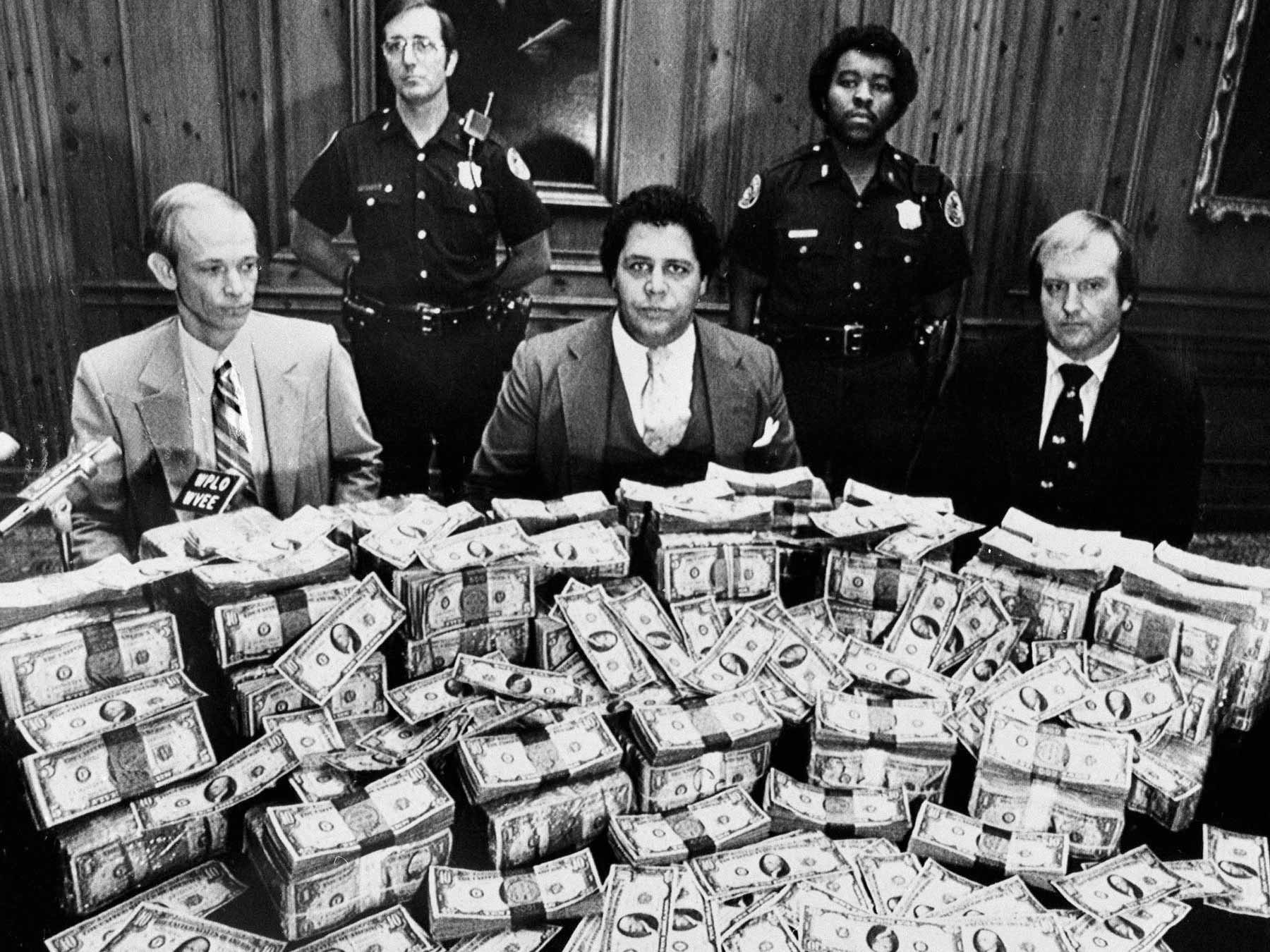
What car did Wayne really drive? Where did the reward money go? And was Wayne scouted by the CIA?
Episode 9
The Trial
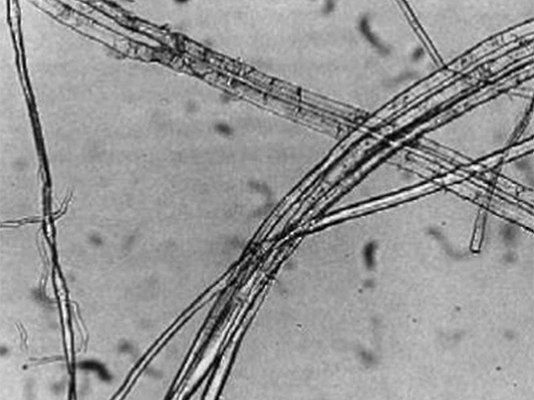
Trial by trace evidence.
Episode 10
Loose Ends
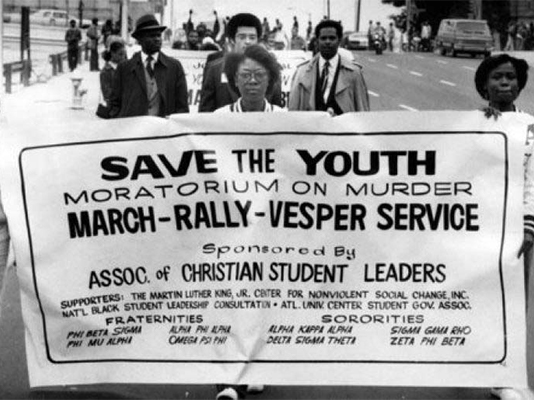
In this case, the truth depends on who you choose to believe.

